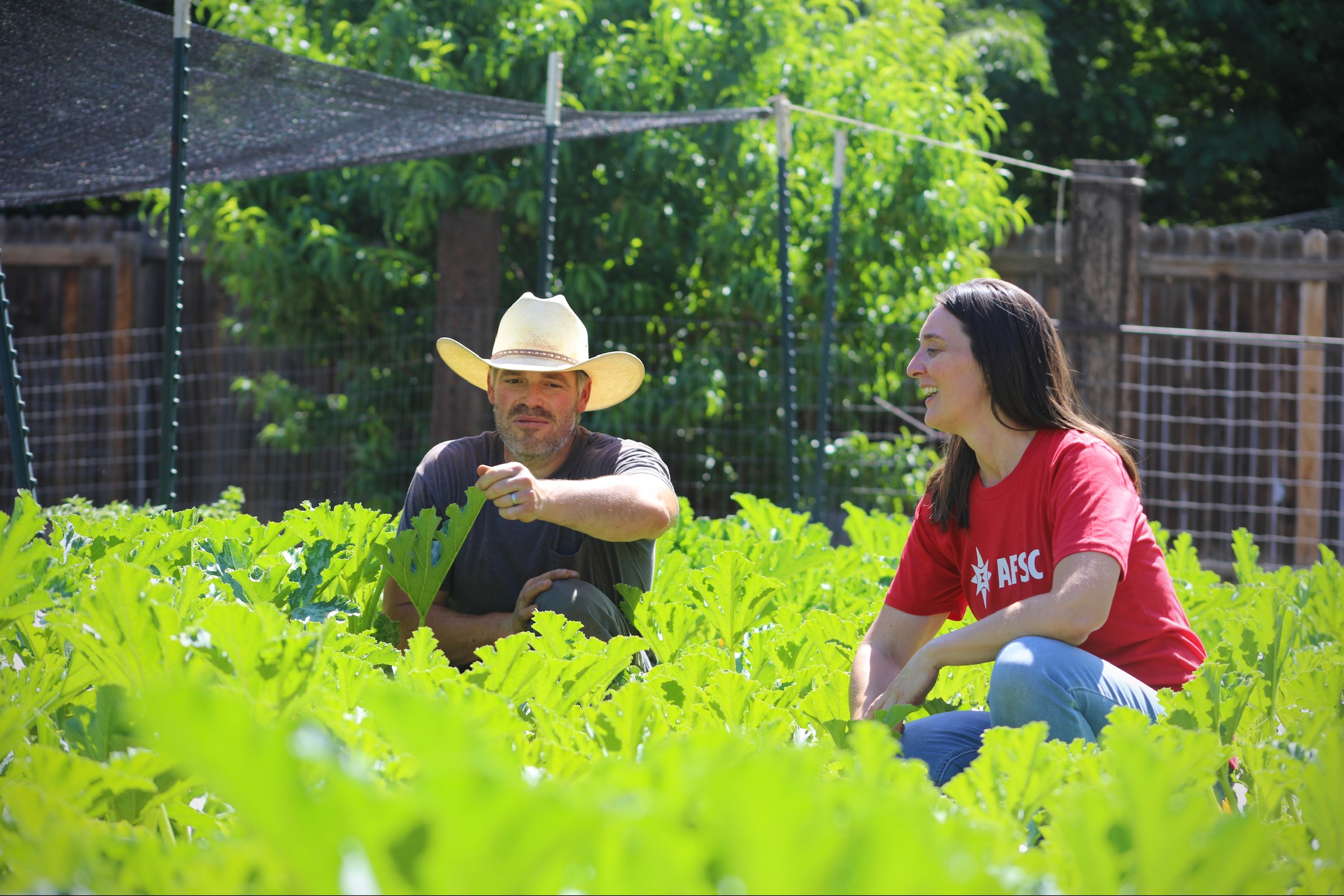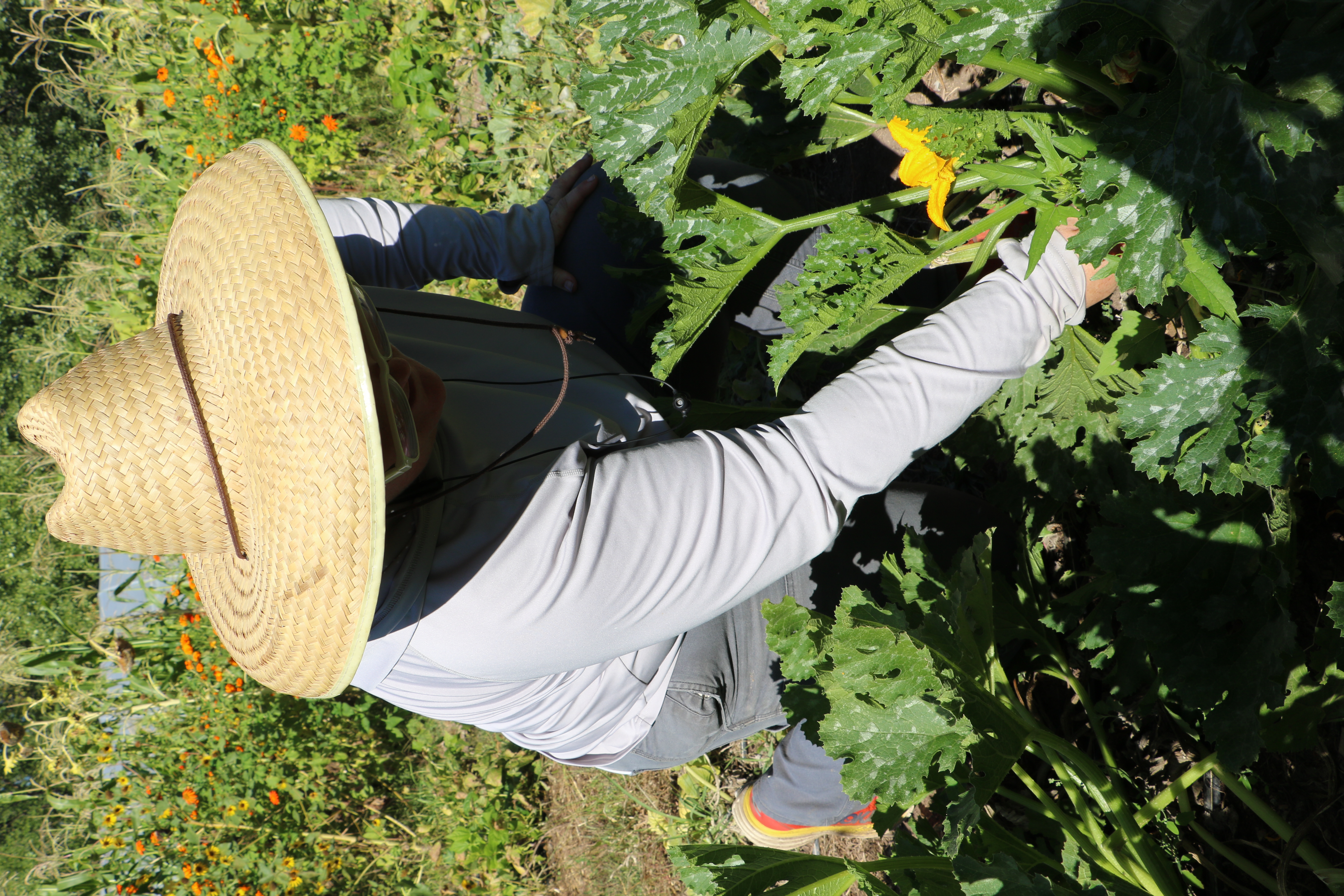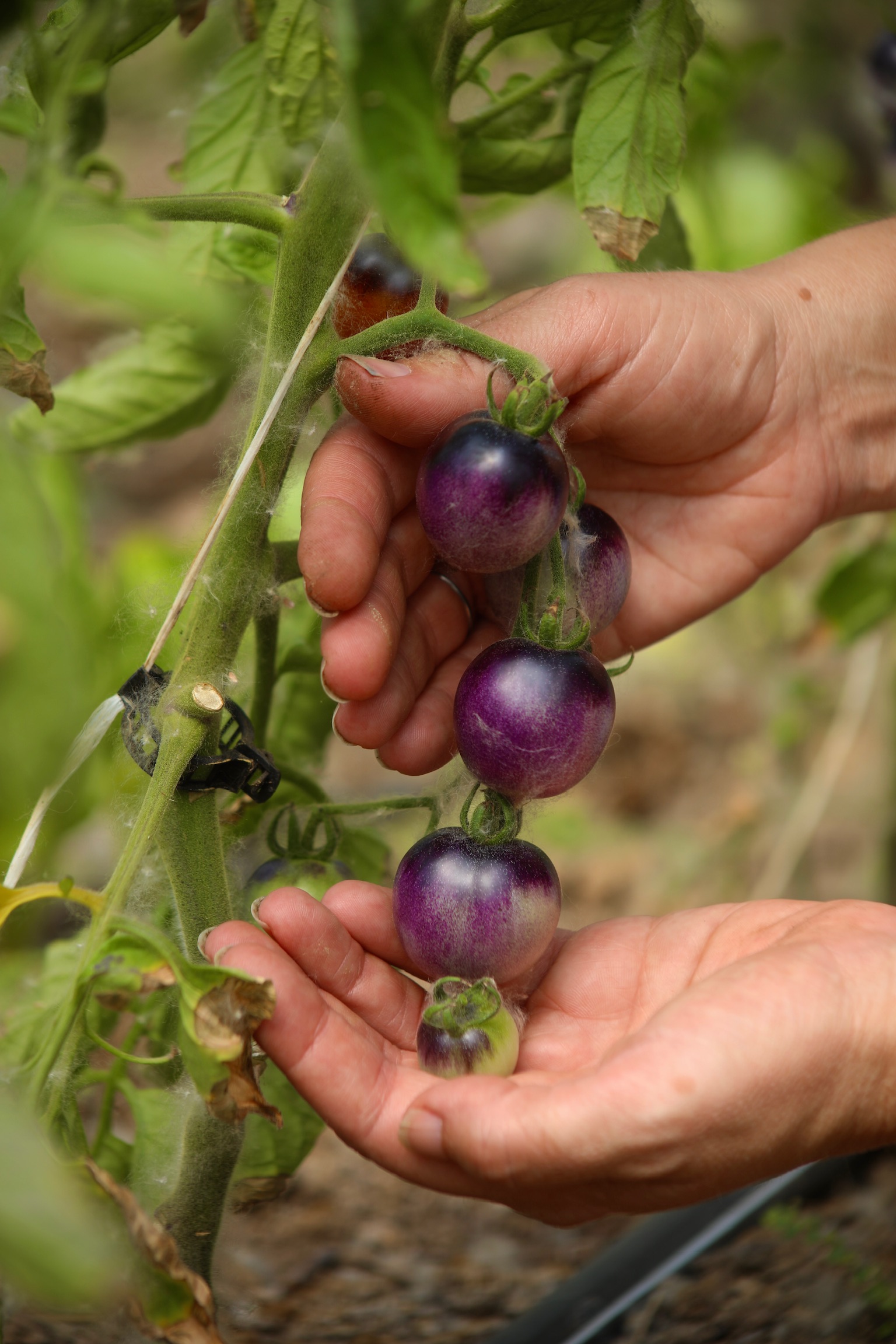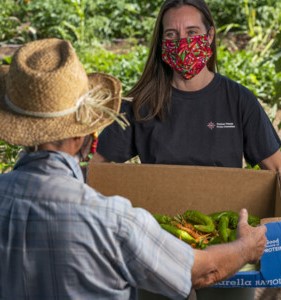
Photo: Anni Hanna
For generations, New Mexico’s farmers read the rhythms of the seasons. They could estimate temperatures and conditions for the coming months. That helped them determine when to plant their crops. But in recent years, climate change has shattered many of these age-old patterns.
“It’s changed the schedules of everything," says farmer Alberto Romero, who has been growing organic fruits, vegetables, and mushrooms for over seven years. “We don’t know when to expect the first frost. It’s very hot when it shouldn’t be, and we can’t adapt fast enough to ever-changing conditions.”
Alberto echoes what AFSC has been hearing from farmers across New Mexico. Throughout the state, farmers are confronting unprecedented climate challenges. Heat waves, drought, wildfires, and insect infestations—all threaten their livelihoods and food security.

A harvest in New Mexico. Photo: Alicia Lueras Maldonado
Casey Holland has been farming for over 15 years. They, too, have seen this transformation firsthand. They are among many local farmers who rely on communal irrigation canals, or acequias, to water their crops. This traditional system of earthen ditches channels water from rivers to farms and homes.
But over the past decade, New Mexicans have faced extreme temperatures—sometimes over 100 degrees for days or even weeks. Seven years ago, drought dried up the canals. Farmers were left uncertain when they could use water from the acequia again.
“The acequia system has been around for several hundred years, and that hadn’t happened before,” Casey says.
Finding solutions together
For over 50 years, AFSC's New Mexico Program has provided vital support to local farmers. Today, much of our efforts focus on helping farmers work together to build resilience to climate change.
When climate disasters strike, this network can serve as a lifeline. Several farmers in our network experienced this when they lost most of their crops to record-breaking heat a couple of summers ago. Many were left without food and income. AFSC provided shade cloth to help farmers protect their remaining crops. We also connected newer farmers to experienced ones who showed them how to install it.
Beyond emergency assistance, we also offer workshops where farmers learn strategies for long-term resilience. At one workshop, farmers learned how to build a Johnson-Su bioreactor, a composting system that introduces beneficial fungi into the soil. Farmers have seen remarkable results. One reported a 50% increase in crop yield while using less water and labor.
Another important tool in building climate resilience is solar technology. By building 35 passive solar cold frames in recent years, we have enabled year-round growing for dozens of farmers. We’ve also helped farmers power their wells with solar energy instead of fossil fuels. And we solarized a commercial kitchen for an Indigenous-led nonprofit that teaches formerly incarcerated people to farm.

Photo: Anni Hanna
Climate adaptation involves more than new tools. It also means changing what people grow. Because of rising temperatures and droughts, growers can no longer plant the same fruit trees—including apples and peaches—that used to thrive in New Mexico. So we’ve connected farmers with others who specialize in trees better suited for current conditions, like goji and figs. We help farmers buy trees to start their orchards. In exchange, farmers document their growing experiences. They provide data on planting dates, flowering times, and harvest yields that inform our collective understanding of what works for our changing environment.
Farmers helping farmers
Our work with farmers emphasizes collaboration over competition. Throughout the year, AFSC organizes opportunities for farmers to learn from each other. When local farmers faced grasshopper infestations, we provided them with insect netting and brought them together to share techniques on organic pest management. Indigenous farmers taught participants ancestral methods that have worked for generations.
“I really like the AFSC farmer gatherings when I can learn from other farmers how they are dealing with climate change," says Alberto. "We talk about the real challenges we are all facing.”
As climate change intensifies, we’re fostering a community-based food system that combines traditional wisdom with modern technology. While farmers can no longer read the seasons the way their ancestors did, they’re finding a new way forward. By sharing knowledge and supporting each other, they’re laying the foundation for thriving even in the face of a changing climate.

